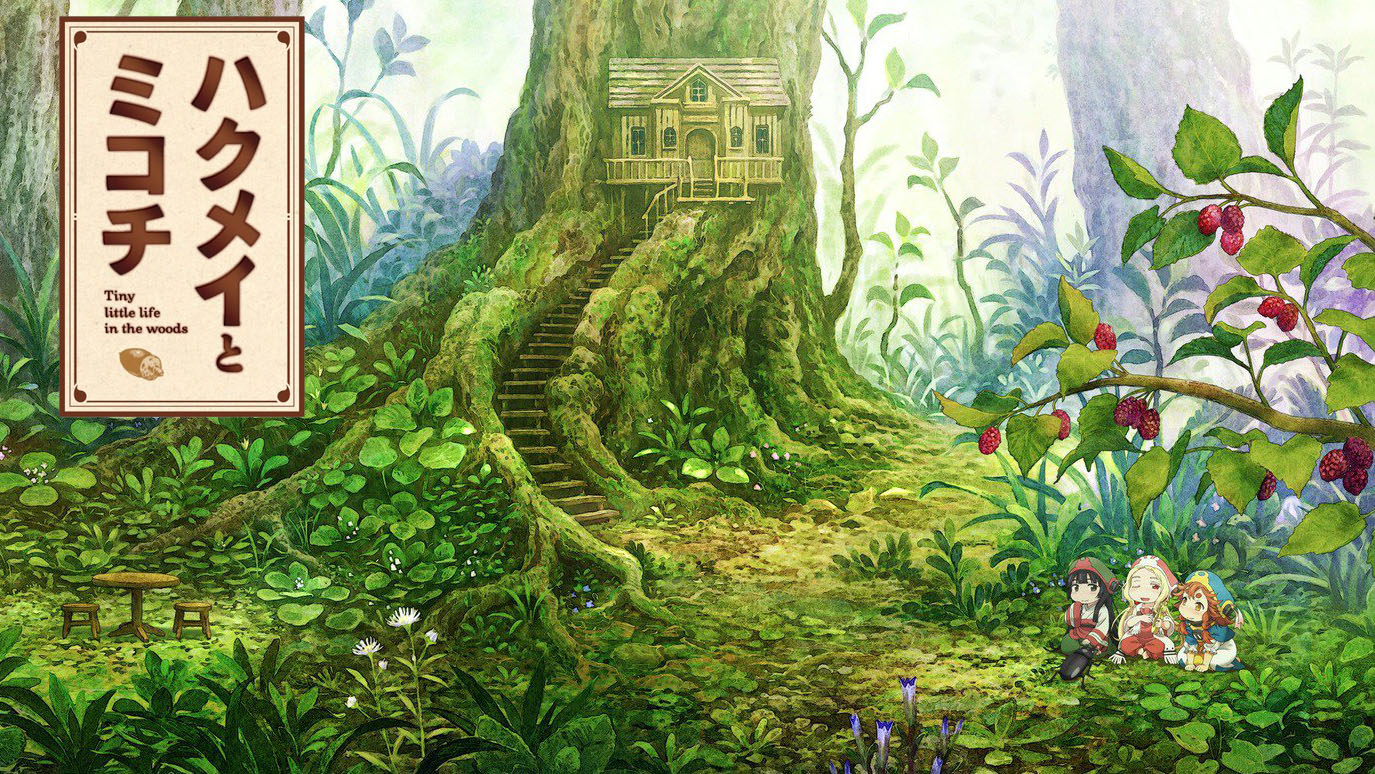
Today we’re traveling to the “far off” year of 2018 for Hakumei and Mikochi, a fantasy slice of life series which premiered in January of that year.
Since it’s still fantasy it’s only one step removed from my usual isekai slop but I think it will be a welcome change of pace from power fantasies and wish fulfillment (although arguably a comfy life in the woods qualifies as wish fulfillment I think).
Hakumei and Mikochi
Studios: Lerche
Publishers: Kadokawa
Director: Masaomi Andou
Translation: Sentai Filmworks
Premiere: January 18, 2018
Hakumei and Mikochi is a comfy slice of life series which follows the titular characters Hakumei and Mikochi, two fairy-like creatures that live in the forest. I say fairy-like because they lack the wings and magical powers associated with cliche fairies and instead have more in common with the little people of The Borrowers (or I could just say they’re like brownies if you’re genre savvy to fairytale creatures).
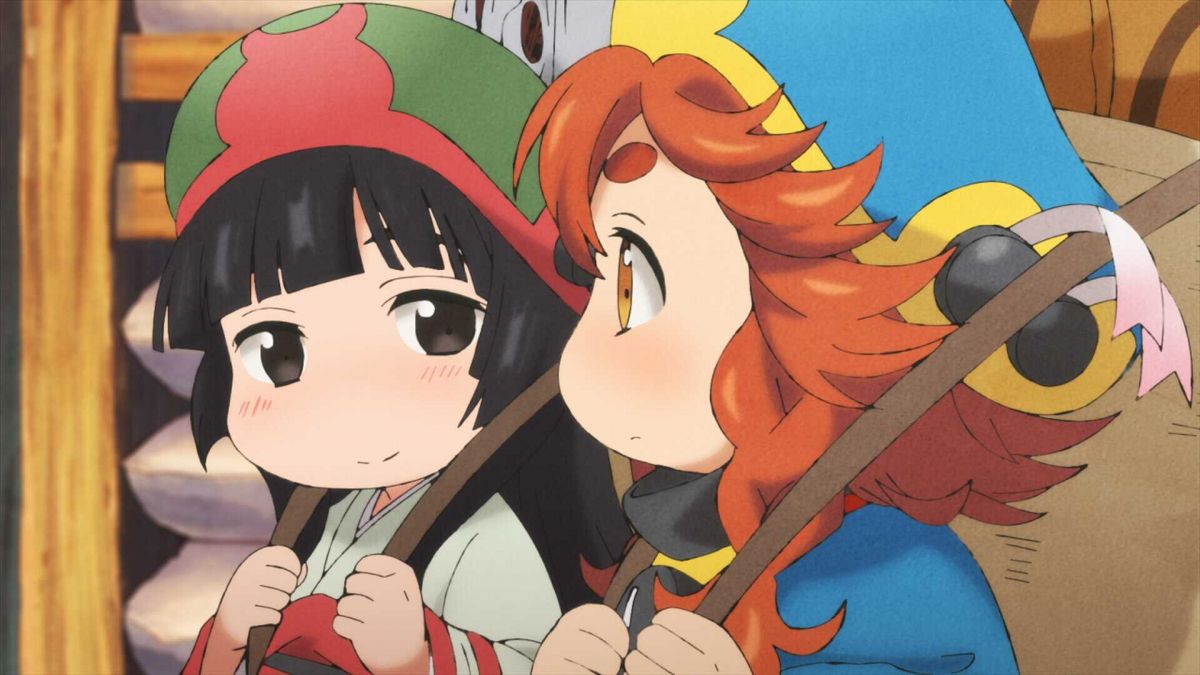
In fact, the two of them live in a world seemingly inhabited solely by creatures like them, as well as talking animals. Despite their life in the forest they’re far from isolated and from the very first episode we’re introduced to the idea that there’s a wide world of creatures just like our heroines (I’m just going to call them brownies).
The brownies live alongside talking animals who also engage in their society in surprisingly human ways. We’re introduced to a weasel carpenter and stonemason, and multiple shopkeepers ranging from cats to hedgehogs. Even the bugs talk in this series and largely seem to be porters or work as transportation. The only exception seems to be fish, which thankfully makes one source of meat that’s seemingly ok to eat.
Despite their human trappings and low tech society, there is an aspect of magic to their world. Though it’s more esoteric than it is commonplace. Spirits are known to exist as well as something similar to magic which is achieved through experimentation, these keep the setting from becoming too grounded in reality.
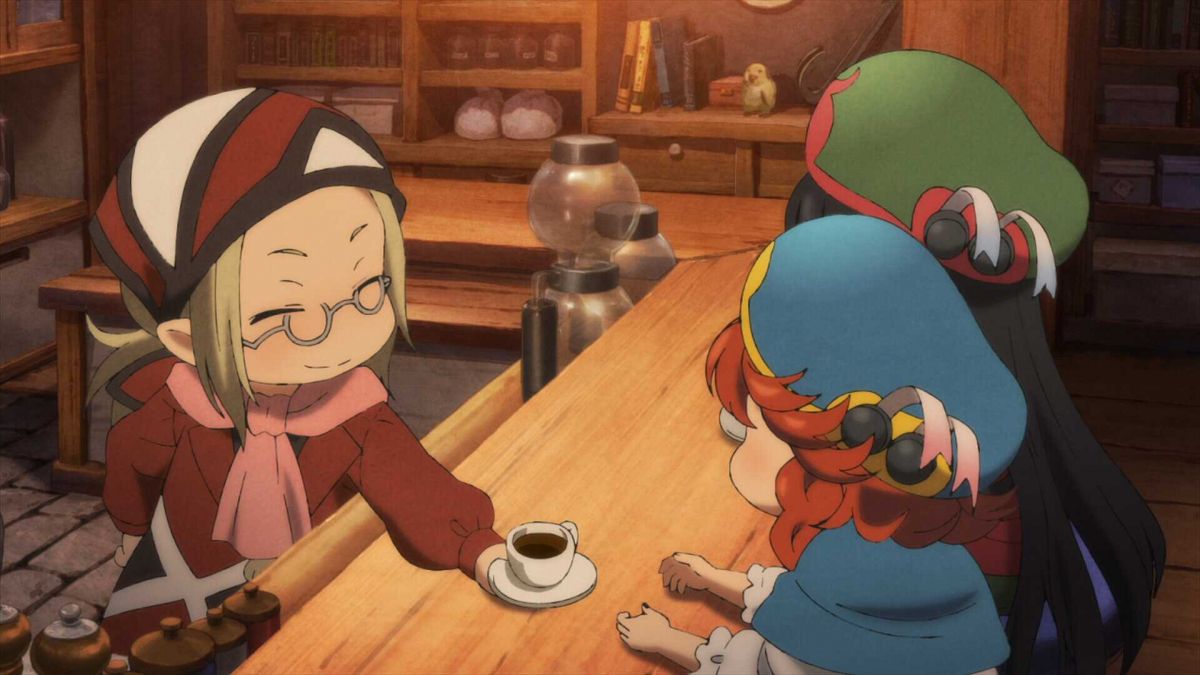
Overall the setting and tone of the series is healing; the episodes are paced almost like a children’s show. Each episode contains two or three self-contained stories. These stories are mostly easily digestible plots like Mikochi loses her wallet in the city or Hakumei has trouble at work (she’s a handyman).
There’s a comforting familiarity baked into the pacing of each episode which leaves you with a gentle feel-good sort of mood.
Studio Lerche does a fantastic job with their stylistic choices with the series. Some scenes are broken up with a comic-book panel format to slow down the pace when showing viewers scenery or mundane actions.
Few details are spared with the verdant backgrounds of the series and that’s important for a show that’s practically defined by it’s pastoral mood. The characters are cute and thankfully 3D being in everything is a recent trend and is thankfully lacking from Hakumei and Mikochi.
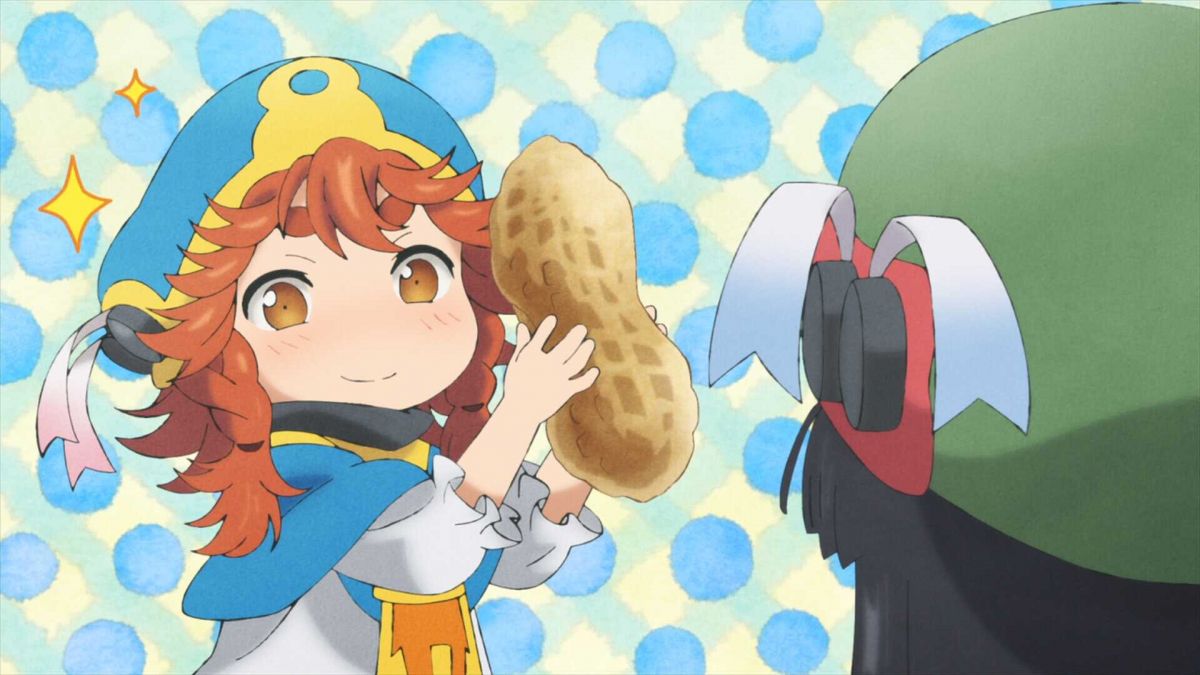
The series stars voice actresses Matsuda Risae and Shimoji Shino as Hakumei and Mikochi respectively. Both Matsuda and Shimoji are relative newcomers to the industry, with only Shimoji having any anime credits prior to 2010 (a bit part in One Piece when she was 6 years old).
Matsuda perfectly captures Hakumei’s tomboyish and gregarious nature and has gone on to voice similar characters sense; like the happy-go-lucky and somewhat dimwitted Noera in Drugstore in Another World: The Slow Life of a Cheat Pharmacist.
In contrast to Hakumei’s rambunctiousness, Shimoji as Mikochi acts as a more demure foil to Hakumei’s antics; a role which she’s… serviceable in. Shimoji’s voice lacks any strong presence and that’s kind of the point I guess. But soft-spoken voice actresses can still stand out from the crowd as the famous Hanazawa Kana has shown us. Shimoji’s performance is good, it’s just not memorable.
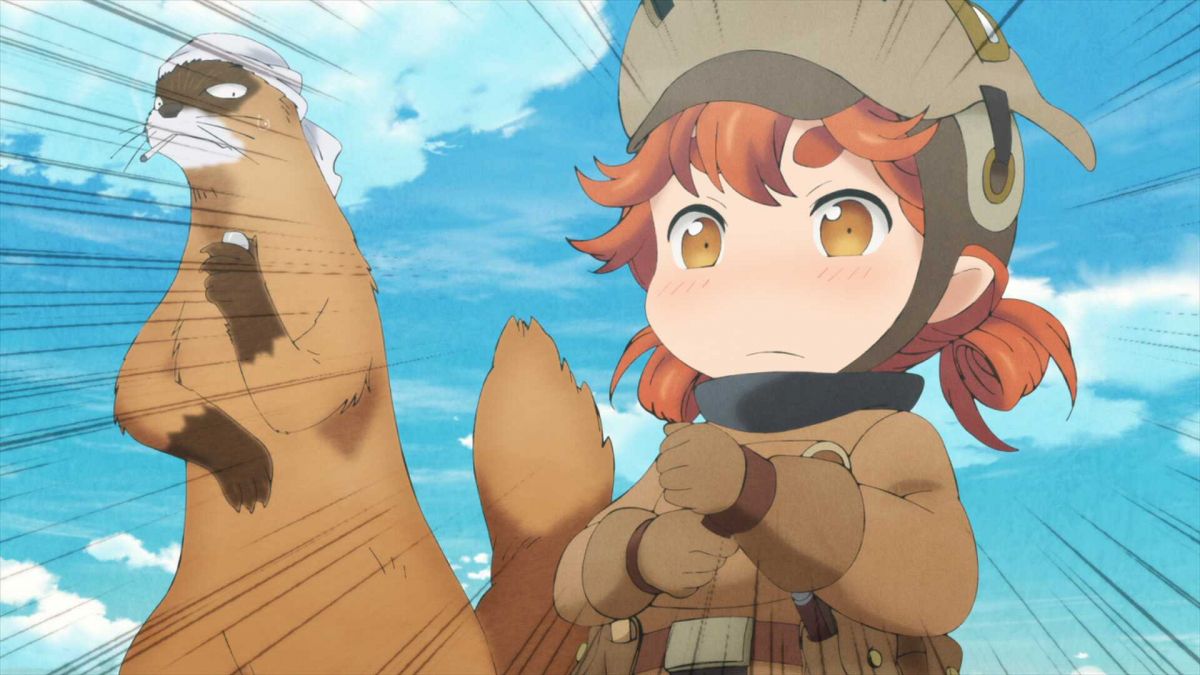
The opening theme urar by Chima is fantastic and probably one of my all time favorite opening themes. It’s relaxing with breathy vocals and a subdued guitar.
Meanwhile the ending theme Harvest Moon Night is sung by the lead voice actresses and each episode ends with a different set of lyrics touching on the themes and events of each episode.
In a previous paragraph when I said that Hakumei and Mikochi was a “healing” show? Both the opening and ending theme are perfect complements to the tone of the series.
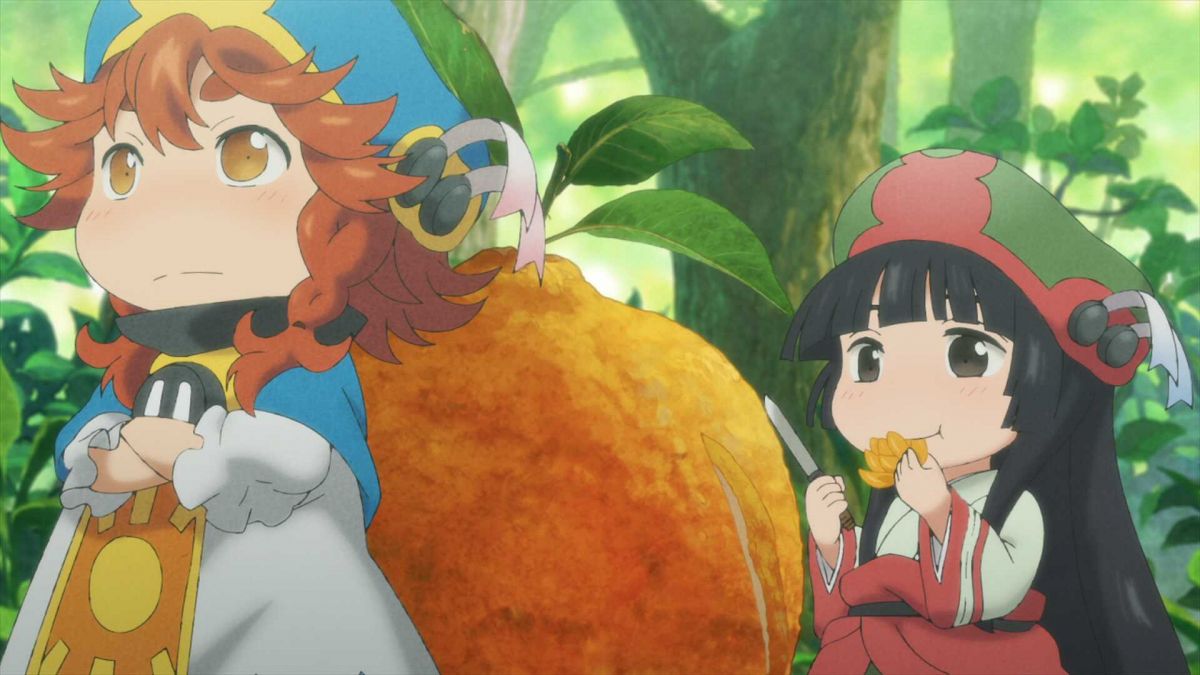
Ultimately. Hakumei and Mikochi feels like everything a slice of life should be: it’s got a relaxing pace, cute characters, easy to understand plots, and maintains suspension of disbelief. Some fans of the genre might complain that it’s too singular in its focus, and that’s a fair criticism. It lacks a complex narrative, it lacks fanservice, it lacks anything beyond being a pure slice of life series.
But I think that’s more than ok. Not everything has to be commodified, sexualized, or otherwise diluted for cheap thrills. Hakumei and Mikochi is unapologetic in its purity, enjoy it for what it is.